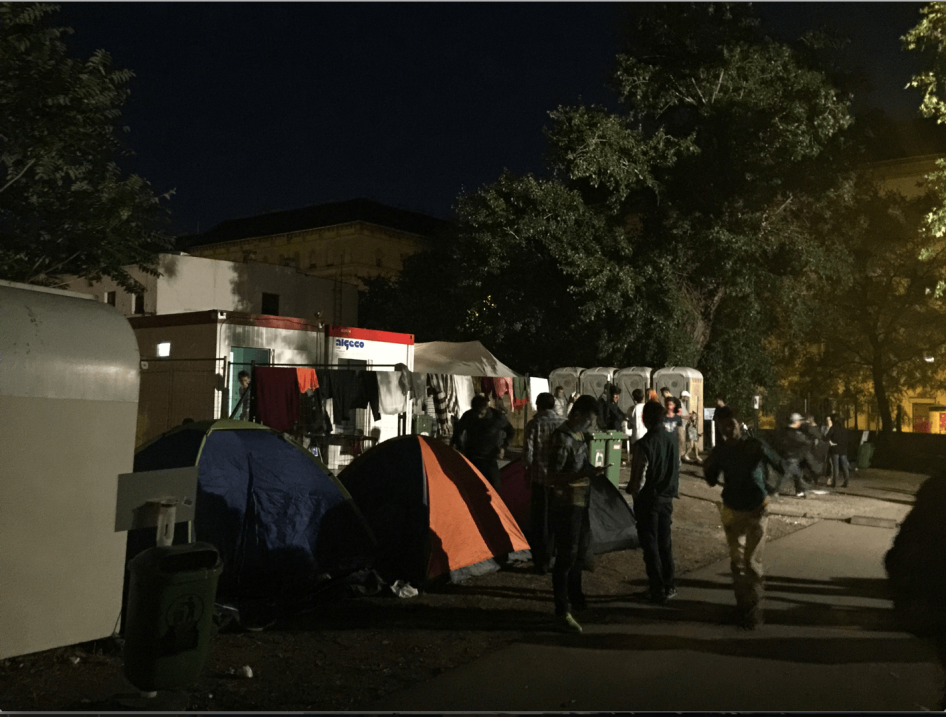Tuesday, 8:07 p.m. at the Nyugati train station in Budapest, the latest train arrives from the Hungarian border town of Szeged carrying migrants and asylum seekers who came via Serbia. Volunteers from the nongovernmental group Migration Aid are standing by to greet them and offer food, clothing, and advice.
Nasrat, a volunteer, explains to two Iraqi Kurds that the group is there to help them. They are tired, cold, hungry, and confused. One of the young Iraqi men wants to call his father in Iraq. Nasrat gives him his personal phone to make the call. It’s a typical night at Nyugati migrant transit zone.
Marton, another volunteer, points out a Syrian family with 16 children sitting on the ground who he says fled the war in Syria. He tells me of an Afghan man who told him he fled because everyone in his village was killed by the Taliban. About 20 volunteers are there, even a homeless Hungarian man who comes up and asks how he can help.
The Hungarian authorities set up the migrant transit zones in Budapest’s three railway stations, but otherwise are virtually absent. The local government set up the transit zones with showers and some portable toilets two weeks ago, but it is left to volunteers to help the migrants and asylum seekers.
The volunteers are doing an amazing job. However, it’s shameful that Hungary and other European governments have failed to ensure proper reception conditions for people fleeing war and persecution, as European Union rules require. In Hungary, the government has instead spent millions building an anti-migrant fence.
Hungary undoubtedly faces migration challenges, with over 120.000 arrivals registered in 2015 alone. The number of asylum applications doubled in 2014, putting Hungary second – behind Sweden – for asylum applications per capita among EU countries. But sealing the border and averting its eyes to its obligations is no solution.
The migration crisis in Europe requires a concerted effort based on solidarity and humanity. Hungary and other European countries have obligations under refugee and EU law to ensure humane conditions and access to protection for those who need it. Right now, volunteers are doing their job; governments should follow suit.










